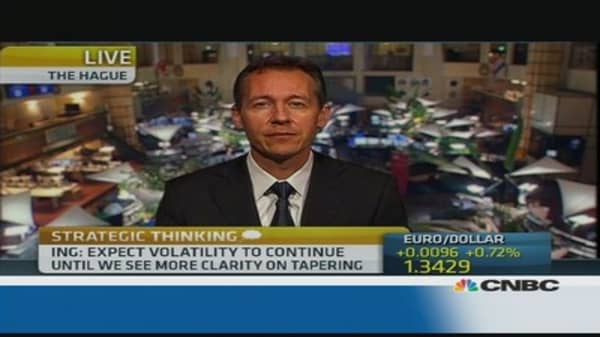U.S. investment bank Goldman Sachs says it expects the rout in Asian emerging market currencies to continue, downgrading its forecasts for battered currencies in the region.
Goldman revised down its three, six and 12-month targets for the Malaysian ringgit, Thai Baht and Indonesian rupiah on Friday.
The currencies, together with their emerging-market peers, have taken a beating recently amid expectations for an unwinding of U.S. monetary stimulus.
(Read more: Emerging markets: dissecting the good from bad)
The rupiah should take the biggest hit as investors flee the volatile group of currencies for the safety of developed markets, according to Goldman.
It expects the rupiah to weaken to 11,800 per dollar in the next year, compared with a previous target of 10,500. That implies a fall of 9 percent from current levels of 10,830.
The rupiah hit its lowest level in more than four years on Friday, racking up losses of 12 percent in the year-to-date.
(Read more: Strategist who correctly called rupee, rupiah collapse)
"In particular, downside pressure on the rupiah could persist in the near term if we see elevated inflation prints over the next few months, and given the prospect of Fed tapering," Goldman said in a note.




